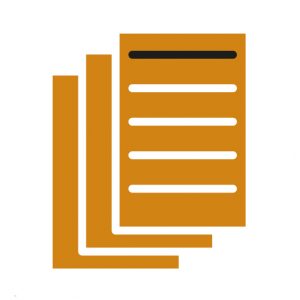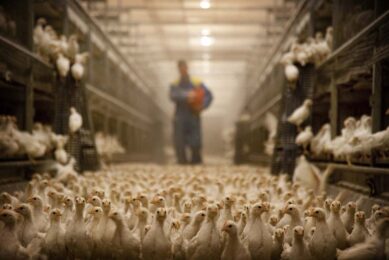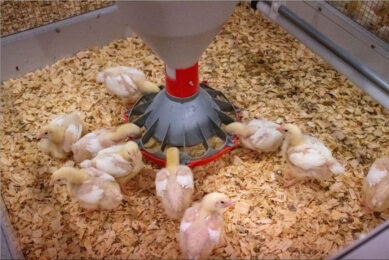Purifying rainwater for poultry applications
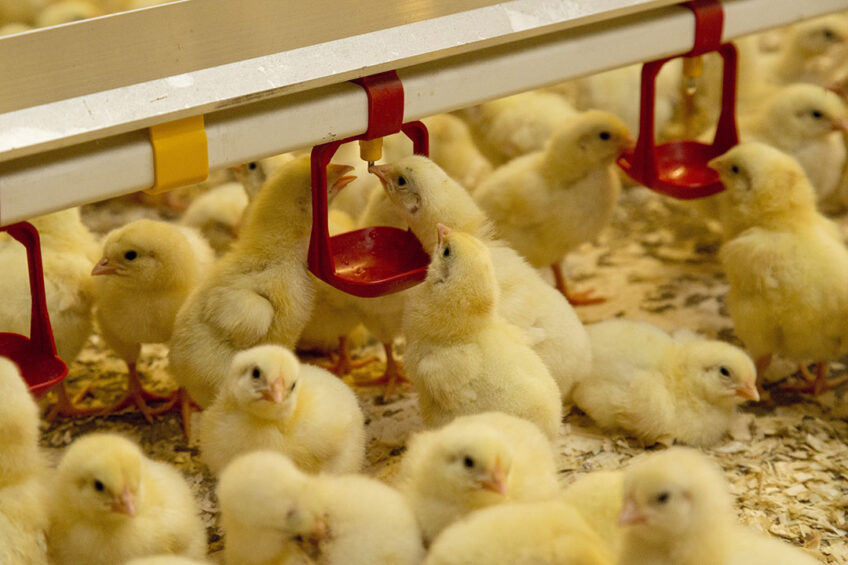
The Experimental Poultry Centre (EPC) in Belgium has directed its research spotlight on the use of rainwater as drinking water for broilers. Under the European funding programme LIFE, the EPC will demonstrate 3 different water-saving innovations over a period of 5 years.
At the Experimental Poultry Centre (EPC) a consortium of companies, institutions and regional governments have come together in the LIFE Aclima scheme, as it is known. The project consists of 3 parts, which are: 1) monitoring of water consumption during cooling; 2) purification of rainwater so it can be used as drinking water for poultry, and; 3) circular use of cleaning water in broiler houses through the use of biological water treatment.
LIFE Aclima started on 1 July 2021 and the project will last 5 years, ending on 1 July 2026. The EPC is the largest poultry research institution in Belgium and owns 36,000 Isa Brown and Dekalb White laying hens and 42,000 Ross 308 broilers in total divided into various experimental groups and across different housing systems.
Cooling means less water consumption
Peter Bleyen, researcher at the EPC in Geel, Belgium, explains that the goal of LIFE Aclima is to make the agricultural sector more resilient and flexible in terms of water use. Bleyen is involved in this project together with colleague Neil van den Broeck.
The first part of LIFE Aclima is about temperature cooling in poultry houses. Bleyen: “We have installed both pad cooling and cooling by means of atomisation, known as spray cooling. Only spray cooling was installed in the layer houses, while both systems are installed in the broiler houses.”
“The big advantage of rainwater is its sustainable nature.”
Research is being carried out to monitor the water use of the 2 cooling systems and to visualise the different water streams in poultry houses, among other things. Bleyen continues: “Furthermore, by cooling houses you can also ensure that animals drink less, so you also need less high-quality drinking water. We include this in our monitoring data.”
The second research aim is to verify whether rainwater can be purified into drinking water for poultry. Bleyen explains: “The big advantage of rainwater is its sustainable nature. Today, groundwater is the main water source for Flanders’ poultry farms. Groundwater reserves in this region are becoming more depleted and only refilling at a slow rate. Therefore, in Flanders it is mandatory for new agricultural businesses to install rainwater storage, so rainwater is available for different applications.”
The EPC has 173 m3 of underground water storage. Rainwater from the underground basins is purified using different techniques until it meets the standards for drinking water for poultry.
Purification techniques
To be able to purify rainwater the EPC has installed 2 water purification systems: nano-ultrafiltration (NUF) and a purification technique with various purification steps. The NUF system uses kidney dialysis filters that were formerly used in hospitals.
Bleyen: “Sustainable again, because these filters still work fine. The filters remove 100% of particles larger than 0.03 microns.” Rainwater is pumped from the underground basins to a buffer vessel of 300 litres. From there it is pumped through the NUF filters and stored again in another 300 litre buffer vessel.”
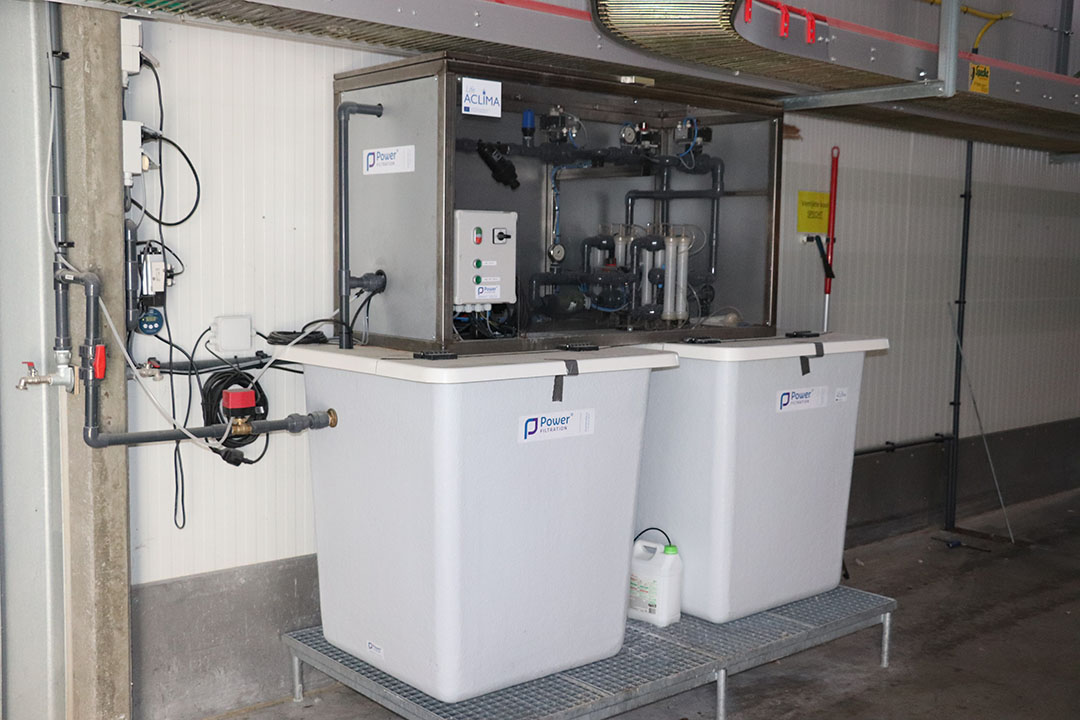
The other purification technique consists of a ‘purification train’ process that carries out the following steps: filtration; UV treatment; disinfection; sand filtration; carbon filtration; disinfection again, and finally another UV treatment. The experimental set-ups with the 2 purification methods became operational this spring, Bleyen reported.
“We will first run a trial with both techniques before we give the purified rainwater to our animals. We want to obtain sufficient analysis results. If we can guarantee continuous water quality, we will start the actual trial next year,” said Bleyen.
In the actual trial both purified rainwater and tap water will be used as drinking water for poultry with the effect on health and technical performance analysed.
Global issue
Bleyen and Van den Broeck note that sufficient water of good quality for all kinds of purposes is a worldwide issue, with the emphasis being on good water quality. Dissolved iron and pollution in groundwater and surface water seem to be worldwide issues.
Van den Broeck: “An advantage of rainwater is that it is does not contain any dissolved minerals like magnesium, calcium or iron. If you can clear the water of other pollutants and pathogens, you end up with a suitable source of drinking water for poultry.”
This is would also be perfectly possible in other areas of the world which struggle with drought, the researchers believe.
Next year, purified rainwater will be administered to the laying hens and broilers of the EPC. Van den Broeck: “We will evaluate the efficiency and the quality results of the purification methods.”
The cheapest purification technique will also be identified, of course, but the researchers are aware that poultry farmers will ultimately decide which method is most cost-effective for them.
The LIFE Aclima project also takes into account the fact that the research covers 2 animal groups – broilers and laying hens. Bleyen: “Broilers start out as day-old chicks at our facility and are very sensitive to microbial contamination in the initial phase of their lives. The production cycle of laying hens, on the other hand, can last up to around 80 weeks which requires a more continuous and constant flow of drinking water.”
The researchers did not take this specifically into account when choosing the purification techniques for each animal group. But Bleyen noted that it may well be that a particular purification method is more suited to a particular animal group than another.
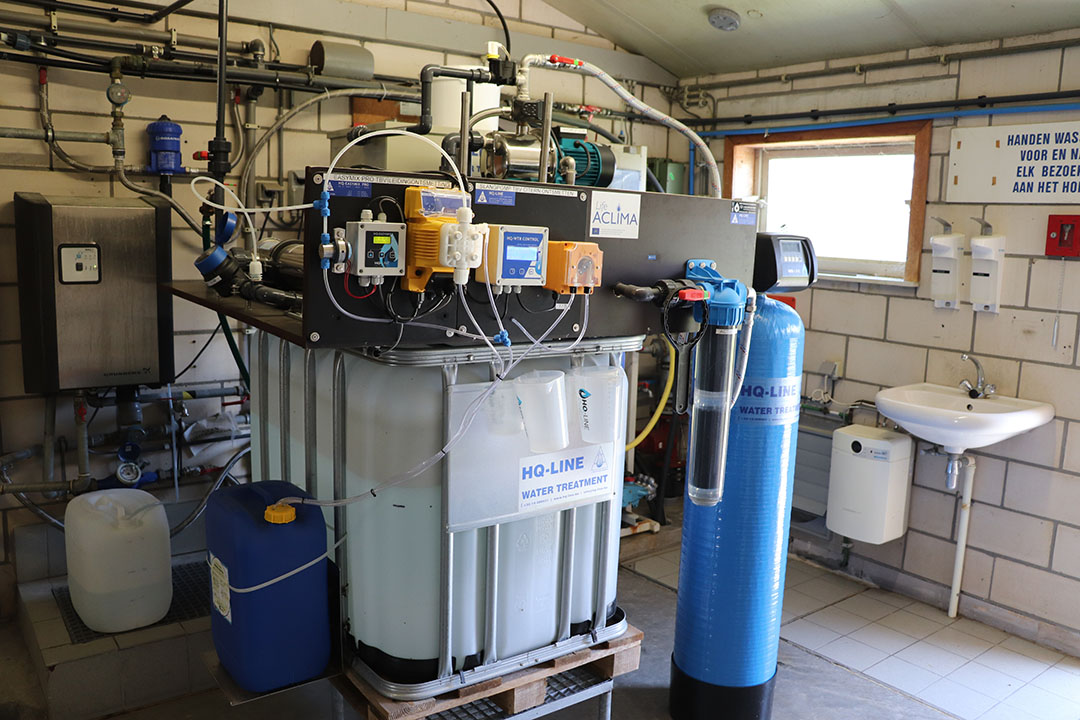
Circular use of cleaning water
A 3rd area of the LIFE Aclima project at the EPC is the circular use of cleaning water from broiler houses. To do this the water that is used for cleaning the houses is collected in underground reservoirs. Bleyen: “We are still working on installing it and starting it up but as soon as the biological water treatment plant is ready we can start purifying the first batches of cleaning water.”
The EPC is working on this together with the Belgian company BelleAqua from Wuustwezel. After cleansing, this water is re-used to clean the houses at the EPC. This part of the project will take 5 years altogether and that time will be used to optimise everything.
LIFE Aclima’s research isn’t limited to the EPC and includes activities on commercial poultry farms. Van den Broeck: “We are currently looking for Flemish poultry farmers who want to re-evaluate water use in their company. We are already in discussion with a number of poultry farms.”
There are no costs involved for Flemish poultry companies wanting to take part, and the programme is accessible and non-binding. Van den Broeck: “We start off with a water audit on the participating farms to get an idea of the water use and the ability to capture and store rainwater. We want to coach the companies and share our knowledge about sustainable water use on poultry farms.”


